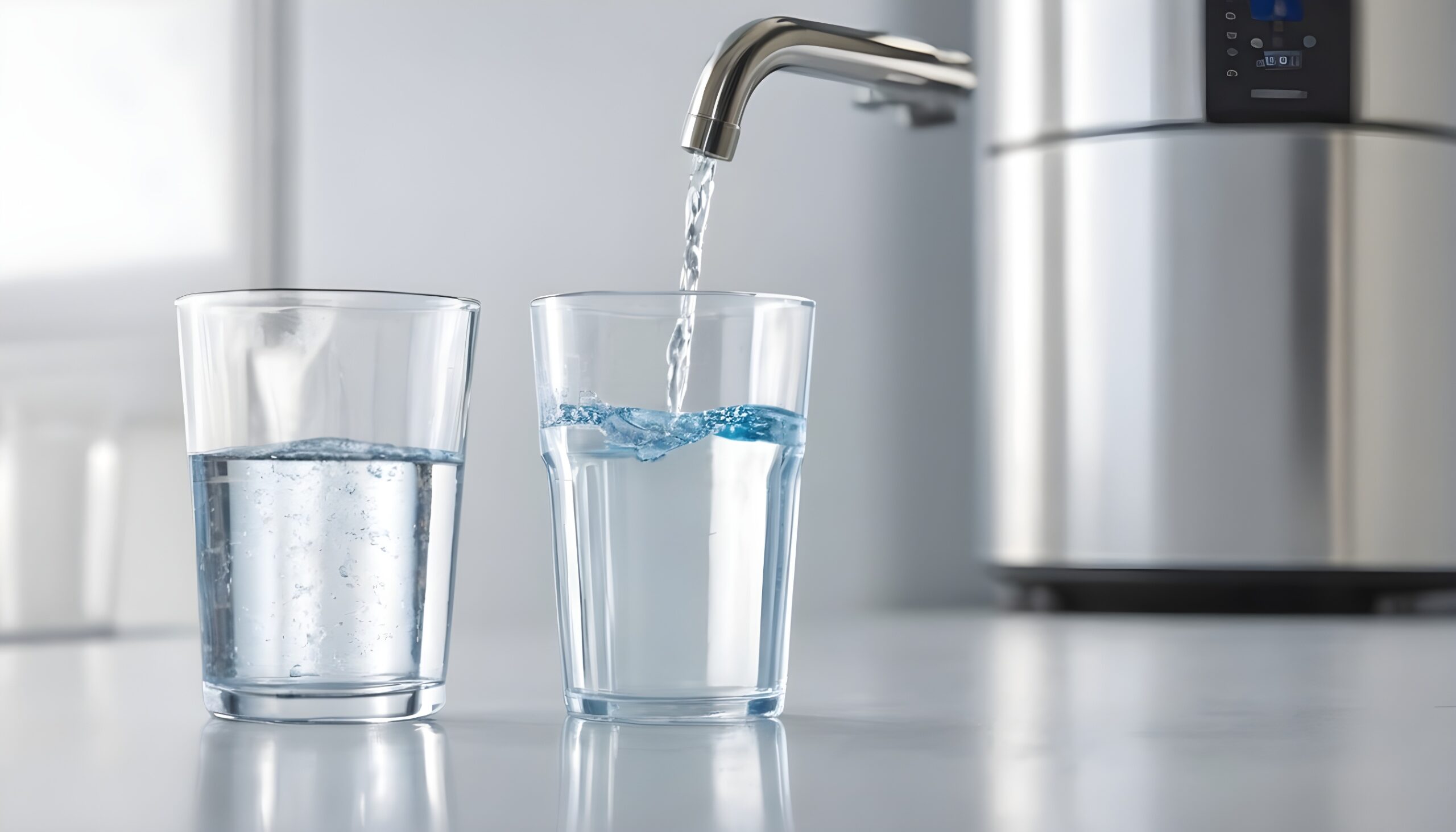Upgrade Your Water High Quality Today with a Water Purification System
Upgrade Your Water High Quality Today with a Water Purification System
Blog Article
Why a Water Purification System Is Important for Tidy, Safe Water
Accessibility to tidy, secure water is a fundamental human right and a keystone of public health. A water purification system stands as an essential remedy to mitigate these threats, guaranteeing that neighborhoods and people can access secure alcohol consumption water.
Importance of Tidy Water
Accessibility to tidy water is a fundamental necessity for human health and wellness and health. It is essential for sustaining life, supporting hygiene, and keeping overall public health and wellness. Water Purification System. The schedule of secure alcohol consumption water substantially decreases the danger of waterborne diseases, which present a significant hazard to neighborhoods worldwide. Polluted water can lead to major health concerns, consisting of stomach ailments, cholera, and dysentery, particularly in susceptible populations such as kids and the elderly.
Additionally, clean water is important for sanitation and health techniques, which are crucial in preventing the spread of infectious diseases. Sufficient supply of water sustains proper hygiene centers, promoting a healthier environment. In addition, access to safe water affects socioeconomic aspects, as it makes it possible for areas to participate in agricultural and industrial tasks, inevitably adding to financial development.
In lots of regions, the lack of tidy water worsens destitution and inequality, additional impeding progression toward lasting development goals. Making sure accessibility to tidy water is not just a public wellness vital but also a foundation for social equity and financial development. Initiatives to boost water top quality and framework have far-ranging benefits, fostering healthier areas and boosting lifestyle.

Common Contaminants in Water
Making certain the availability of clean water is weakened by various impurities that can jeopardize its safety and top quality. The existence of virus, such as viruses, parasites, and bacteria, positions considerable wellness dangers, especially in locations doing not have appropriate cleanliness. These microorganisms can cause waterborne conditions, leading to extreme illness and even fatality.
Chemical impurities also offer a crucial issue. Hefty steels, including arsenic, lead, and mercury, usually enter water products with industrial discharges or rusty plumbing. These compounds can gather in the body with time, leading to long-lasting wellness concerns such as neurological damage and developmental conditions.
Furthermore, agricultural runoff introduces chemicals and plant foods into water supply, which can disrupt ecosystems and adversely effect human health and wellness. Nitrates, commonly located in fertilizers, can cause serious conditions like methemoglobinemia, specifically in infants.
Advantages of Water Purification Systems
Recognizing the vital need for safe drinking water, water filtration systems use a myriad of benefits that improve public wellness and ecological sustainability. Mostly, these systems properly remove hazardous contaminants, including microorganisms, viruses, hefty steels, and chemicals, making sure that the water taken in is cost-free from toxins and pathogens. This reduction in contaminants considerably reduces the danger of waterborne conditions, advertising total area health.
Along with health and wellness advantages, water filtration systems contribute to environmental sustainability by lowering reliance on mineral water, which usually produces extreme plastic waste. By utilizing a purification system, families can go to this website reduce their carbon footprint and contribute to a more lasting ecological community. In addition, these systems can boost the preference and odor of water, making it a lot more palatable for daily usage.

Various Kinds Of Filtration Methods

One usual technique is reverse osmosis, which uses a semi-permeable membrane layer to different water from dissolved solids and contaminants. This procedure properly lowers impurities, including hefty metals and chemicals. An additional commonly utilized technique is ultraviolet (UV) disinfection, which utilizes UV light to reduce the effects of viruses and bacteria, making them harmless without the use of chemicals.
Triggered carbon filtering is another prominent method, using carbon to adsorb organic substances, chlorine, and unpleasant smells, improving preference and odor quality. Purification, a procedure that entails boiling water and condensing the heavy steam, properly gets rid of contaminants and minerals official statement however may call for more power compared to various other methods.
Ion exchange is typically utilized to soften water by changing calcium and magnesium ions with salt or potassium ions. Each technique has its restrictions and benefits, making it vital to recognize their performances and performance in addressing certain water quality issues - Water Purification System. Inevitably, selecting the appropriate filtration technique is important for ensuring safe and tidy alcohol consumption water
Picking the Right System
Picking a suitable water purification system requires cautious consideration of various elements, including the details pollutants present in the water supply, the volume of water needed, and the desired purification technique. Initially, it is necessary to perform a water high quality test to determine impurities such as microorganisms, heavy steels, or chemical toxins. This information will lead you in selecting a system that successfully targets those details contaminations.
Next, evaluate your home's daily water intake to figure webpage out the system's capacity. Solutions are available in numerous sizes, from point-of-use filters for drinking water to whole-house units that purify all water entering your home.
Additionally, consider the filtration technique that finest fits your requirements. As an example, reverse osmosis is very reliable for getting rid of a vast variety of impurities, while UV purification is superb for removing microorganisms.
Conclusion
To conclude, the application of water purification systems is vital for ensuring access to secure and clean water. These systems efficiently get rid of hazardous pollutants, consequently reducing the threat of waterborne illness and improving public health and wellness. Moreover, they add to ecological sustainability by lessening reliance on mineral water. By recognizing the relevance of clean water and the advantages of numerous filtration methods, neighborhoods can make educated decisions to guard their health and advertise socioeconomic stability.
Identifying the important demand for secure alcohol consumption water, water filtration systems offer a myriad of advantages that enhance public wellness and environmental sustainability.In enhancement to wellness advantages, water purification systems contribute to environmental sustainability by decreasing dependence on bottled water, which frequently creates too much plastic waste. Eventually, the fostering of water filtration systems is a proactive action toward making certain tidy, risk-free water for future generations while safeguarding public wellness and the atmosphere.
Choosing an ideal water filtration system calls for cautious consideration of different elements, consisting of the specific pollutants existing in the water supply, the volume of water needed, and the preferred filtration method.In verdict, the application of water filtration systems is important for making certain access to tidy and safe water.
Report this page